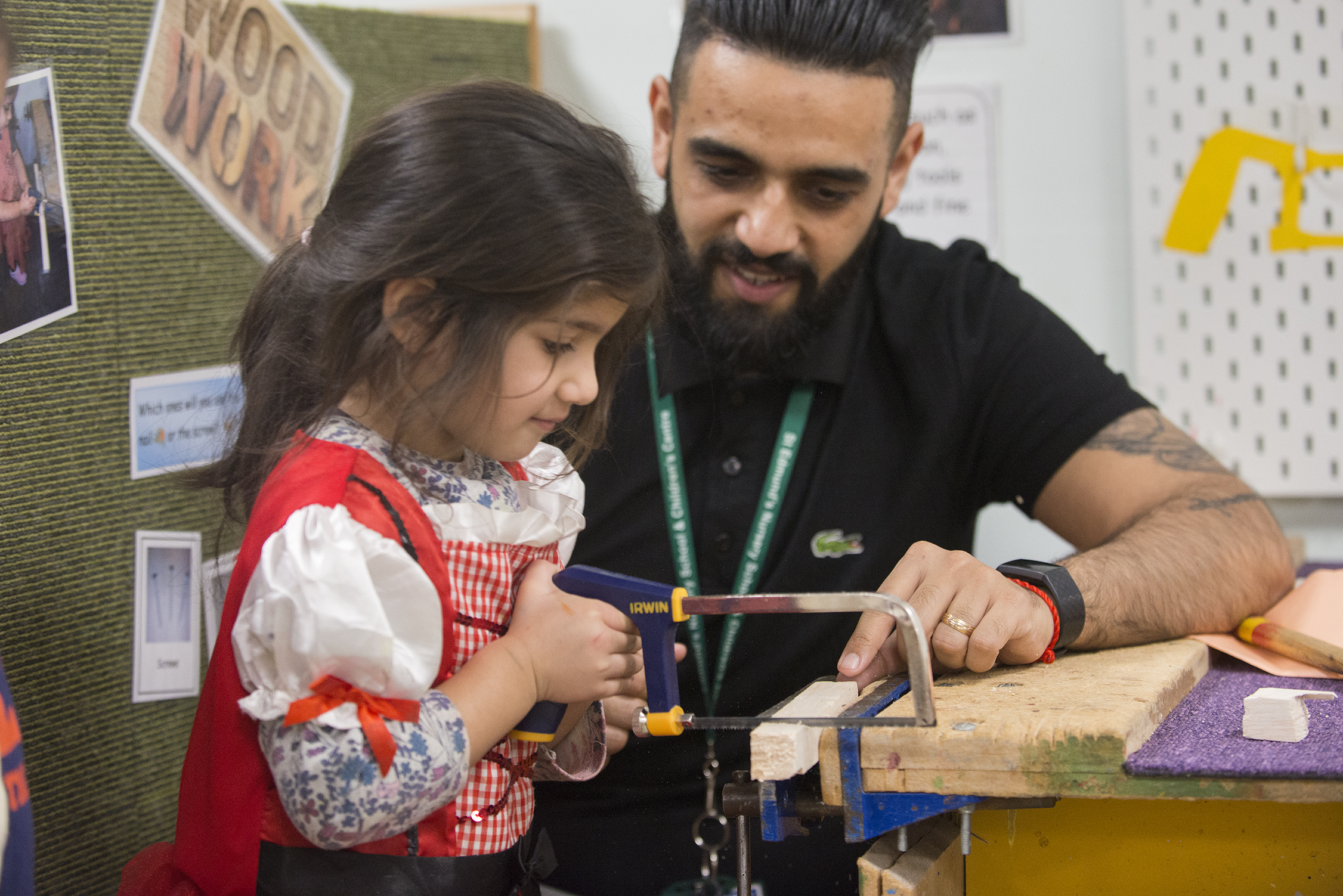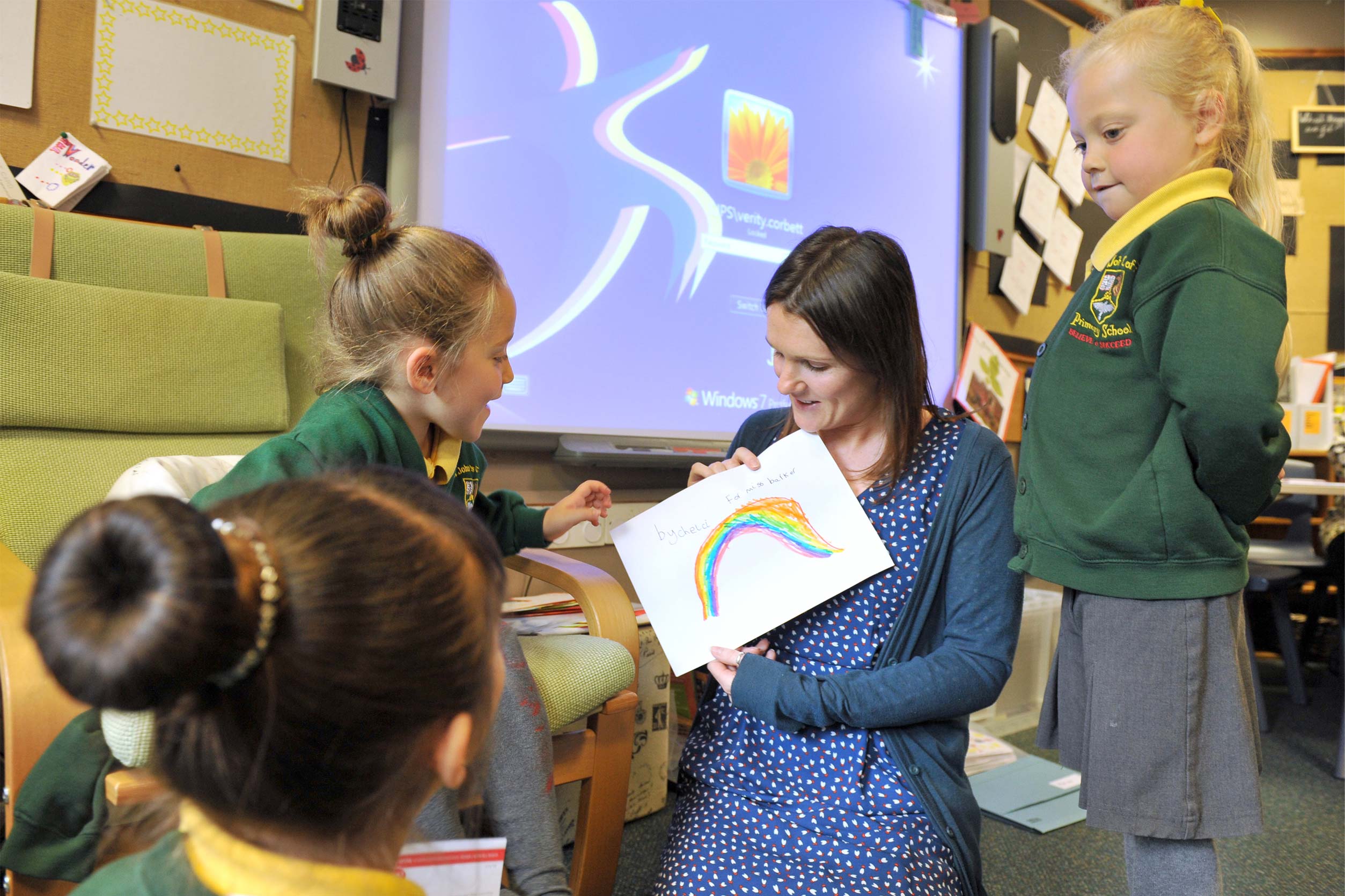12 MONTHS
This is a 12 month training programme, with real life experience working as part of a team with Primary (including Early Years) and Secondary age children.
QTS and L6 DIPLOMA
Upon completion of this course, you will gain Level 6 Diploma and QTS (Qualified Teacher Status).
other certificates
You will also have the opportunity to choose to gain a PGCE (Post Graduate Certificate of Education).
FACE-TO-FACE TRAINING
This course will have at least 1 day a week of face-to-face training, including 4 ITAP (intensive study) weeks .
ASSESSMENT METHOD
The course will be marked based on an ongoing portfolio of coursework, professional learning conversations, short presentations, and in-placement observations.
fun and rewarding
A job working with children is great! You will help children learn and grow.
The Job Role
Work and interact directly with children on a day to day basis supporting the planning of and delivery of activities.
It is also known as:
- Assistant Childminder
- Early Years Practitioner
- Nanny and Early Years Worker
- Nursery Assistant
- Nursery Nurse
- Nursery Practitioner
The Apprenticeship
- Apprentices receive a salary from your employing school (must be on the unqualified teacher scale)
- Fees are paid through your school’s apprenticeship levy
- Option to take the PGCE (£1600, paid by the apprentice, not the apprenticeship levy)
- Two placements within our local partnership schools
- Support of an experienced mentor
- Weekly research informed SCITT based subject and pedagogy training
The Skills You Will Learn
- Establish a safe and stimulating environment for pupils, rooted in mutual respect
- Set goals that stretch and challenge pupils of all backgrounds, abilities and dispositions
- Demonstrate consistently the positive attitudes, values and behaviour which are expected of pupils.
- Be accountable for pupils’ attainment, progress and outcomes
- Promote good progress and outcomes by pupils
- Be aware of pupils’ capabilities and their prior knowledge, and plan teaching to build on these
- Guide pupils to reflect on the progress they have made and their emerging needs
- Encourage pupils to take a responsible and conscientious attitude to their own work and study.
- Plan and teach well-structured lessons
- Impart knowledge and develop understanding through effective use of lesson time
- Promote a love of learning and children’s intellectual curiosity
- Set homework and plan other out-of-class activities to consolidate and extend the knowledge and understanding pupils have acquired
- Contribute to the design and provision of an engaging curriculum within the relevant subject area(s).
- Make use of formative and summative assessment to secure pupils’ progress
- Use relevant data to monitor progress, set targets, and plan subsequent lessons
- Give pupils regular feedback, both orally and through accurate marking, and encourage pupils to respond to the feedback.
(Read more information provided by gov.uk, here).
Core Modules
This apprenticeship is made up of different terms, over the course of 12 months. This is a 12-15 month course (July – June) with End-Point Assessment in the term after qualifying.
Following the structure of the ITT and ECT Framework, our curriculum will ensure trainees develop their knowledge, understanding, and application of all standards and our curriculum over time. Each phase of training will focus on specific areas of the curriculum, however subject knowledge, assessment and planning are golden threads throughout the training.
Creating a Climate for Learning
At the onset of their teacher training journey, our trainees will concentrate on standard 1, 4 and 7 aiming to creating a positive climate for learning.
How Pupils Learn
In half term 2 trainees will further develop their understanding of cognitive science and how pupils learn, ensuring trainees’ teaching promotes learning in the classroom. (Standard 2)
Developing Quality Pedagogy
Moving to half term 3 and 4, trainees will develop their understanding and application of quality pedagogy; exploring and applying strategies to support high quality planning and adaptive teaching.
Term 1
Topics
Safeguarding
Unions, Introduction to Learning, Theories Introduction to Behaviour Management and City of research
Getting to know your new school.
Creating a climate for learning.
Plan and teach well-structured lessons to create a good climate for learning.
Preparing to teach.
Preparing and teaching well-structured lessons.
Subject knowledge
Adaptive teaching
Working with parents and carers.
Subject knowledge development
Assessment questioning, and checking understanding.
Learning with a focus on English as an Additional Language (EAL) and New to English.
Well-being and managing workload.
Term 2
Topics
Getting to know your placement B school
Rosenshine's Principles of Instruction
Cognitive Load and Working Memory
Meta-cognition and Modelling
Subject Knowledge Development
Well-being and preparation for returning to placement A.
Meeting the needs of the Individual.
Assessment for Learning
Subject knowledge & Wider Curriculum
Summative Assessment
Taught Sessions
All taught sessions are delivered by expert practitioners and are usually delivered in the school setting. Many areas of the curriculum are supported by cutting edge education research provided by the Centre for Applied Educational Research (CAER).
The taught sessions are on the following themes:
- High Expectations
- How Pupils Learn
- Subject and Curriculum
- Classroom Practice
- Adaptive Teaching
- Assessment
- Managing Behaviour
- Professional Behaviour
Your training will match the needs of the age phase and key stage you are training to teach. We ensure that all trainees have a good understanding of all areas of the school curriculum through subject-specific training sessions, access to national subject networks as well as opportunity to learn from experts in the school setting.
Apply Now
Apply to the course here.
Entry Requirements
- Apprentice teachers need to have a rapport with children, a passion for their subject, and to have the ambition to become excellent teachers.
- You will have a relentlessly positive outlook, show initiative and be a good team player, ready to work hard in a challenging but wonderfully rewarding profession.
QUALIFICATIONS NEEDED
- An undergraduate degree, or equivalent. This should be an honours degree (Third Class or above), or equivalent.
- If you need to improve your subject knowledge, you may be asked to complete a subject knowledge enhancement (SKE) course.
- Grade 4 (C) or above in English and Maths, or equivalent qualification.
- Grade 4 (C) or above in Science (Primary Only)
We’ll consider candidates with pending GCSEs. We will not consider candidates who need to take a GCSE equivalency test.









